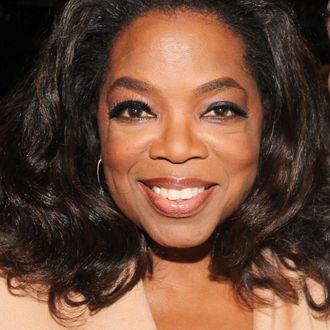
At Sunday night’s premiere for the forthcoming Martin Luther King Jr. biopic Selma, members of the cast spoke briefly with New York about the race-based legal inequalities that were present during the civil-rights movement and those remaining today. The film depicts the lives of MLK and other activists as they fought for the Voting Rights Act of 1965; according to these notables, many of the struggles faced during that era have yet to be overcome. Here’s what they had to say.
New York: Would you say the march on Selma and the protests going on around the world in respect to the Eric Garner, Trayvon Martin, and Mike Brown decisions draw parallels?
Oprah Winfrey: “Everything happens exactly when it’s supposed to. There is never not divine time. It’s a matter of, are you paying attention? I think that this movie has perfect timing; as a people, we were marching across the bridge on film at the same time people are marching in Berkley, in New York, and across the world right now. The difference is a sense of rigorous discipline and intention that Dr. King and fellow brothers and sisters brought to Selma. And so, it’s a wonderful thing that people are protesting. But in order for real change to happen, you’ve got to figure out what [it] is you want first. I think that’s the first question. So you’re not just marching.”
Tyler Perry: “There are huge differences in the fact that all these warriors, they went before — Dr. [Martin Luther] King and [Andrew] Young, they fought hard and over the bloodshed of many. What I appreciated about this film is that it teaches us how to protest. No riots, peaceful protest. And it’s not just one race that can change it, it takes a collective to make it happen.”
Carmen Ejogo: “In Selma specifically, we are dealing with the issue of voting rights, and you’re disempowered until you find your voice in that way. It’s something that the people in Ferguson are currently dealing with until they are appointing people that look like them and it registers with them in the right way … and until then, things can’t be changed. I think this is an absolute parallel, and it makes the film more exciting to people. None of [us] knew this would happen when we were filming. However, having said that, there is a universal theme going on in this movie, which is that people are rising up and fighting for the world around them to hear their voice, and that goes beyond what’s happening in Ferguson and goes beyond voting rights, it’s just a theme that has universal appeal and will always be with us.”
Tom Wilkinson: “They are all fighting for rights and human equality. I’m not an expert on American society. I don’t live here. But they were both extremely tragic. Sadly, there are far too many similarities with Selma and what’s gone on in Ferguson and with Eric Garner. It’s troubling to see this happen in this country right now. The injustices of both are just so unsettling.”
Jeremy Strong: “Yes, in a really troubling way, there are a lot of parallels. When we were shooting in Atlanta around the corner from Ebenezer Baptist church and [when] we were in Selma, Alabama, there are a lot of ghosts there; you can feel them and their energy. And because of that, there was a collective sense of responsibility and just being on this very sacred mission and to tell this story the right way. However, because of the current atmosphere, the mood is very palpable, everyone sort of tapped into that, and it makes this film very current and urgent and of our time.”
Andre Holland: “I think the similarities are striking — just last night there were tens of thousands of people marching in protest of an unarmed black man being wrongfully harmed, and that’s not unlike what you are going to see tonight in this film. I think a person protesting peacefully has power, and we need a leader and we need a clear-cut sense of demands.”
Wendell Pierce: “When you watch this film, if it wasn’t for the knowledge of knowing this happened when it happened, you would think it happened after this summer. You realize that what we are dealing with now is that we just lifted the veil on an ongoing issue that we’ve been fighting for a very long [time]. It’s not even a parallel, it’s the same. It’s a continuation of vigilance that was needed. Civil rights are always depicted as something that was historic and has ended, but it’s an ongoing vigilance. The American values that we are willing to die for, and people have died for — there is a lot of blood on that ballot box.”





























